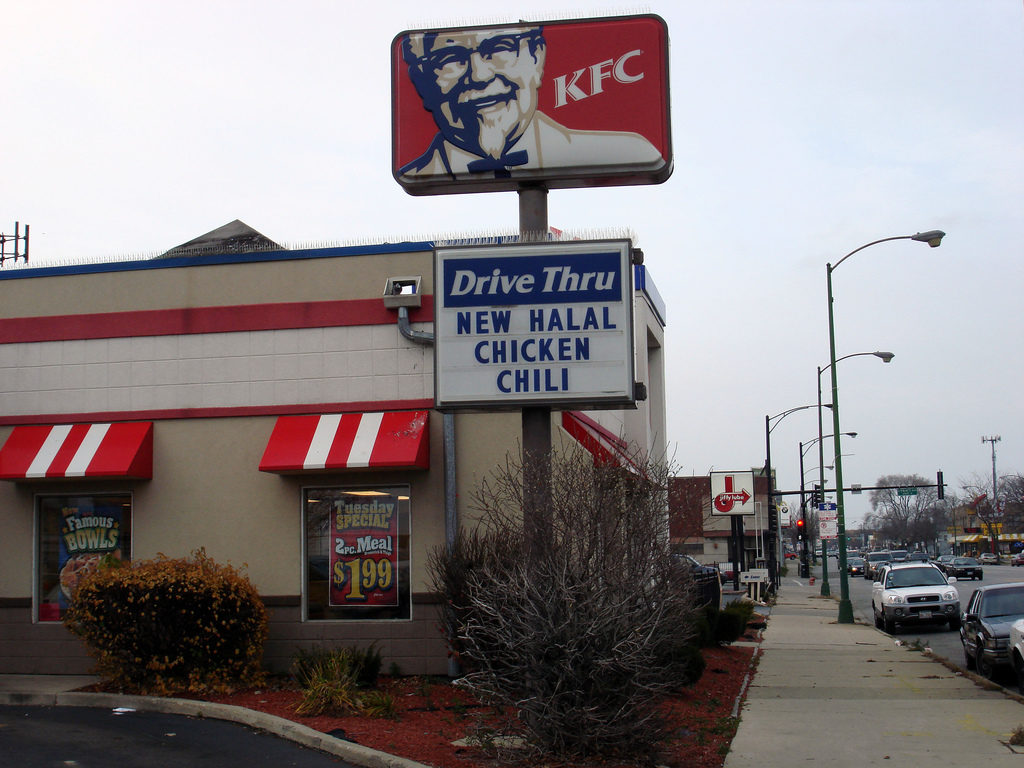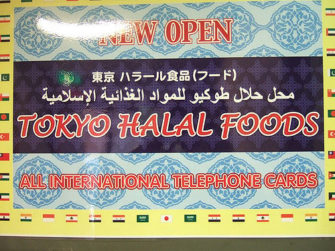
In Brand Islam Faegheh Shirazi investigates many dimensions of the interplay of Islamic halal guidelines and marketing. As a Christian theologian who has written on the impact of consumer culture upon religious belief, I learned much from Shirazi’s study of halal marketing in a tradition very different from my own. This is interesting terrain where producers and consumers, driven by very different incentives, interact in complex and surprising ways. Here I will focus on two elements of the realities discussed by the book: halal marketing as an intervention into the politics of recognition and halal marketing as an intervention into religious authority. I offer my own analysis of the material Shirazi presents; hopefully in a manner that complements the goals of the book.
Halal Marketing and the Politics of Recognition:
It is easy enough to establish the interests of many corporate producers in catering to the halal market. Shirazi cites the significant size and growth in this market segment globally; by some measures up to 17% of the food market (57-59). Add to this the price premium that halal goods can demand, and one sees the obvious profit motive to serve this market. That said, it is clear that such a marketing move has risks for large, broadly marketed brands. While some opposition to halal foods is based on slaughter practices, opposition to popular food brands that seek halal certification even for their vegetarian food offerings manifest the deeper Islamophobic roots of such opposition.
Shirazi documents halal marketing among many different kinds of producers from small proprietors to transnational corporations. In the evaluation of these various halal marketing attempts, frequent mention is made of the desire for profit. The same examples provide many opportunities to discuss the cultural effects that accompany for-profit marketing.
Corporate halal marketing has consequences beyond profits and brand curation. When broadly marketed brands offer halal products, they also offer cultural recognition to Muslim consumers in the marketplace. This recognition is active even if mass market goods have difficulty complying with strict halal interpretations (see the discussion of KFC in the UK, 44).
All of the efforts that brand curators put into associating their products with security, care, beauty, and integrity give them profound cultural power. Even when driven only by profits, corporate producers of consumer goods inevitably deploy the cultural power of their brands to offer recognition to minority consumers. This results in the construction of a commercial cosmopolitan sphere that honors the concerns of minority groups.

This commercial cosmopolitan recognition in some way rivals that of the political sphere. Politics is marked by public consensus and open dissent; the commercial sphere by market segmentation. Anti-sharia activists organize boycotts of major brands that cater to halal needs, but the bar is set much higher than the political sphere. In the commercial sphere, to be successful, a boycott must result in the removal of the halal options from the market. The mere public voicing of dissent does not undo the material presence of halal options on the market; these products’ direct hailing of Muslim consumers continues in advertising and commerce. To give but one example, KFC defused the tension through market differentiation: halal offerings in highly Muslim areas of the UK, non-halal chicken and pork options in others. Rejection of halal chicken in one neighborhood is complemented by its presence in another. The lack of public consensus does not impede commercial recognition, which continues via market segmentation.
One particularly interesting question involves the effects of major brand halal marketing. Here recognition meets homogenization. How do the use of halal by large brands impact Muslims’ religious identities and practices? Is this a homogenizing and assimilating force? Or does it deepen and differentiate identity?
Halal Marketing and Religious Authority:
In addition to its political effects, halal marketing has consequences for religious authority as well. In her discussion of cosmetics, Shirazi cites a religious authority dismissive of concerns about the presence of alcohol in cosmetics and personal care products. Since such products are not “consumed” in a manner relevant to traditional notions of halal, their alcohol content is not a matter of halal restrictions (140). But attention to the permissibility of ingredients in cosmetics has consequences for ongoing debates among the ulama concerning whether such personal adornments are haram or halal. One could argue that scrupulous attention to halal ingredients by producers brings a broader range of Qur’anic passages and other authorities into play and can thus function as a “material fatwa” legitimating their use. These are more than covert arguments for allowing cosmetics; they move the debate into the material realm of commodity marketing.
It is in Shirazi’s descriptions of hijab and women’s sportswear that the function of commodities as material religious arguments or judgements becomes most explicit. Women face profoundly limited opportunities to participate in sports in “some sharia-controlled countries” (178). Many of the arguments given against women’s’ participation involve dress. Thus, the producers of sportswear designed to conform to hijab requirements are making a powerful intervention by eliminating a major objection to female sports practices. There is more here than merely eliminating objections, however. The existence of hijab-conforming sportswear functions as a material argument that actively associates the virtues of wearing hijab with women’s athletics.
My argument here is not about the deregulation of religion through the emergence of alternative experts and the expansion of personal choice. Yes, the activists, entrepreneurs and large corporations that lobby for and produce such gear are actively intervening in the traditional realm of judgements of the ulama. But they do so through the material medium of the commodity of sportswear. Sports hijab suggest that it is appropriate for Muslim women to be athletes.
Although these effects cannot be reduced to the deregulation of religion, they still have a profound impact on religious authority. Such “material fatwas” have a decidedly pro-consumption bias; as is evidenced in the example of halal cosmetics. Traditional judgements by the ulama can rule some goods and actions outside the realm of consumption and practice. Consumer goods seldom function to convey the importance of abstaining from anything. In this regard, it would be interesting to consider the interplay of halal marketing with Muslim practices outside the realm of consumption choices, such as the practice of the Ramadan fast.

